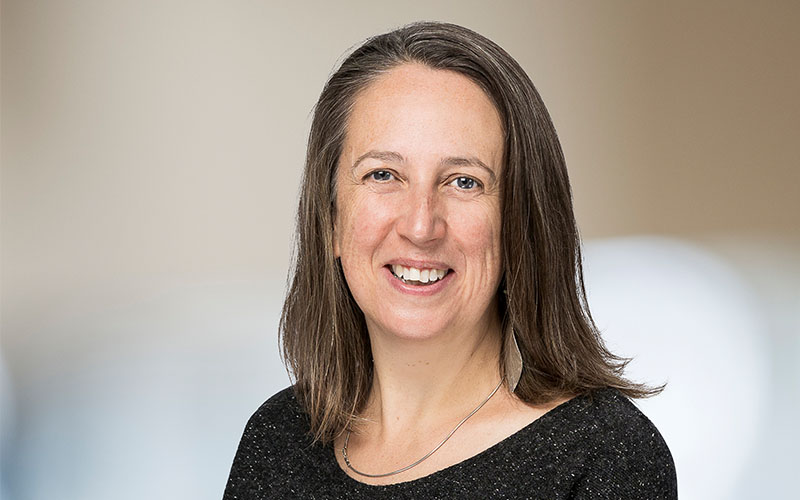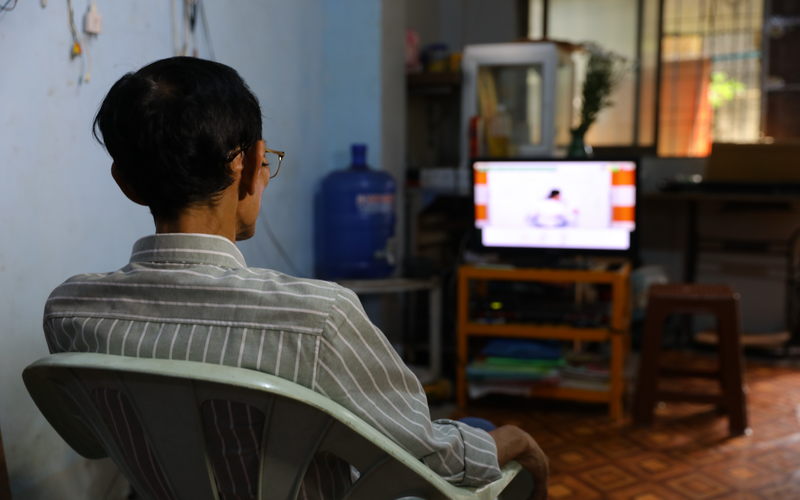
2023 in Review: January to June
January
At the start of a new year, COVID-19 remained topical with Burnet Director and CEO Professor Brendan Crabb AC telling the House of Representatives Inquiry into Long COVID and Repeated COVID Infections, that half a million Australians with long COVID needs to be acknowledged.
“If the committee achieved nothing else but penetrating the Australian psyche around the significance of this issue, it will have achieved a lot [for patients] … and for what happens in future,” he said.
February
The Fleming Fund — a £265 million UK aid investment to tackle antimicrobial resistance in low- and middle-income countries — announced it will extend the Papua New Guinea Country Grant to the end of the year. This major project is led by Burnet in close collaboration with a wide range of partners from Australia and in-country.
March
Professor James Beeson, Group Head of Burnet’s Malaria Immunity and Vaccines Group, was lead author in a study offering new insights into the role of apical membrane protein 1 (AMA1) in helping malaria parasites infect red blood cells, with implications for how to target the protein with vaccines and therapeutics.
“What AMA1 does is it sticks to a receptor on the surface of the cell, and that enables the malaria parasite to get into the red blood cell,” Professor Beeson said.
“We thought that the protein only had one way of binding to the surface of the cell, but this research revealed that it can also bind to an additional receptor.”
Dr Michelle Boyle, Group Head of Cellular Responses to Disease and Vaccination, was awarded a Snow Medical Research Foundation Fellowship — Australia’s largest philanthropic biomedical fellowship — to support her research into malaria immunity. Dr Boyle will receive AUD$1 million dollars every year for eight years for the development of vaccines and therapeutics for malaria, a parasitic disease, and one of the biggest killers in children under five years of age globally.
Professor Caroline Homer AO, Deputy Director (Equity, Diversity, and Inclusion), and Dr Tafi Marukutira, TB specialist in Public Health were acknowledged for excellence and leadership in research with special awards from the National Health and Medical Research Council (NHMRC). Professor Homer was presented with the Elizabeth Blackburn Investigator Grant Award for 2022, dedicated to a project aiming to reduce maternal and newborn deaths, and stillbirths, by transforming midwifery in the Asia-Pacific region through research and innovation.
Dr Marukutira received the Frank Fenner Investigator Award for an evaluation of the national HIV public health program in Botswana, looking at lessons to ensure equitable access to care for migrants living with HIV in sub-Saharan Africa.
April

Research found Myanmar’s people and health systems showed resilience during double crises — the pandemic and political upheaval. In the first study of its kind in the country, it found people in Yangon stayed resilient by developing alternative pathways to seek and provide health services, such as teleconsultations, mobile clinics, and sharing social media advice. One of the authors, Research Director of Burnet Institute Myanmar Dr Kyu Kyu Than, said people have relied on community-based social organisations for transportation and to access essential medicines in times of emergency.
May
Burnet introduced its new visual identity featuring a new tagline, ‘Reach for the many’.
"As scientists and researchers, we reach for solutions to complex problems, for discoveries and new knowledge. But, of course, there’s a humanitarian context, of reaching to get the products and benefits of those discoveries to the whole community, especially to those most in need,” Professor Crabb said.
“And ‘for the many’ is an essential affirmation of our focus on equity, and the last line of our purpose – that no-one is left behind.”
Findings from a systematic review, with Burnet Senior Research Officer, Dr Annie McDougall, as the lead author, informed World Health Organization (WHO) recommendations on how to improve preterm birth outcomes. WHO recommends women at risk of preterm birth within seven days should be administered antenatal corticosteroids, even if it is anticipated that they may deliver before completing the full course of steroids.

June
The Australian Institute for Infectious Disease (AIID) — of which Burnet is a Foundation Partner — announced its location and building design. The AIID is a visionary AUD$650 million project supported by the Victorian State Government to provide a rapid, coordinated response to current and future pandemics and infectious diseases. It aims to do this by fostering collaboration between Foundation Partners — the University of Melbourne, Doherty Institute and Burnet — industry, and an alliance of Victorian infectious disease organisations.
A Burnet project to support women’s sexual and reproductive health by targeting bacterial vaginosis and its recurrence was awarded a grant from the Victorian Government’s Victorian Medical Research Acceleration Fund (VMRAF). The research, led by Professor Gilda Tachedjian, Group Head of Retroviral Biology and Antivirals Laboratory, focuses on the development of a novel bioactive to optimise the vaginal microbiome.
Highlights from July to December here.

Professor Brendan Crabb AC
Director and CEO; Chair Australian Global Health Alliance and Chair Pacific Friends of Global Health
View profile
Professor James Beeson
Deputy Director, Research Strategy; Head, Malaria Immunity and Vaccines Group; Adjunct Professor, Monash University
View profile
Associate Professor Michelle Boyle
Deputy Program Director, Disease Elimination; Head, Cellular Responses to Disease and Vaccination Group; Snow Medical Fellow
View profile
Professor Caroline Homer AO
Deputy Director – Gender Equity, Diversity & Inclusion; Co-Head, Global Women's and Newborn Health
View profile

Dr Annie McDougall
Senior Research Fellow and Team Leader - Medicines in Pregnancy Research
View profile




